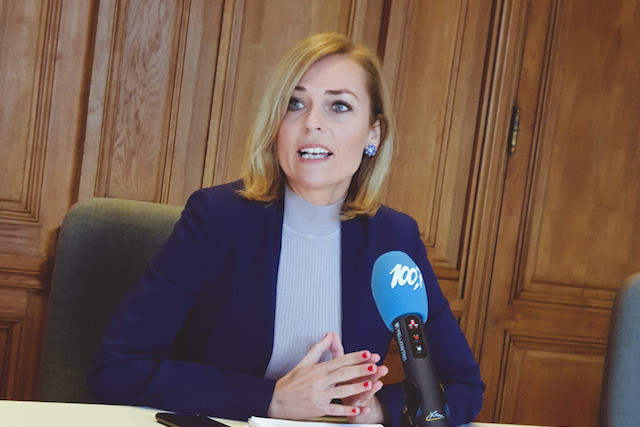The Observatoire de l’égalité follows other such observatories, such as for housing or health, and aims to provide a better understanding of gender equality in the grand duchy in areas including domestic violence, jobs, leadership, work-life balance, education, income and health.
“Gender-specific data is extremely important for gender policy,” said Taina Bofferding (LSAP), minister for equality between men and women at the launch on 9 March, a day after International Women’s Day, which Bofferding said lasts all year in her ministry.
The creation of a monitoring body forms part of a national action plan on gender equality. “We need as complete a picture as possible,” Bofferding said about inequalities in Luxembourg. “They’re not just numbers, but there are people behind them and realities,” she said.
The pandemic has highlighted a lack of data in some fields, Bofferding said, with the impact of the crisis on women’s employment or other factors simply not analysed. “We cannot give answers to these questions, because we don’t have the numbers,” she said.
In a first step, the Observatoire depends on data collected by other organisations, such as Statec or jobs agency Adem. However, the ministry wants to work on developing the indicators further, for example to establish how women of minority groups might be further disadvantaged.
For domestic violence, it is also including not only police or court records but also information gathered by women’s shelters or other associations where victims seek help without being officially reported.
Women’s rights groups have long demanded better record-keeping on gender-based violence outside the home. The Observatoire would help establish which kinds of data are missing, Bofferding said about its current focus on domestic violence and calling the project a work in progress.
Within the domains analysed, the monitoring body will also look at, for example, the portrayal of women in the media and their participation in sports, culture and civil society.
The Observatoire’s database will be systematically updated, analysed and adapted, Bofferding said, also with a view to providing better data to external organisations, such as the EU, UN or OECD.
The sections on domestic violence and jobs are already available online, compiling the data available, with leadership and work-life balance to follow this year. The education and income sections will be presented in 2022 with health data to be available starting 2023.
Carlien Scheele, director of the European Institute for Gender Equality, in a video message congratulated Luxembourg on its new resource to combat inequalities, saying it would “no doubt show you the areas most in need of improvement” and help develop the best measures.
